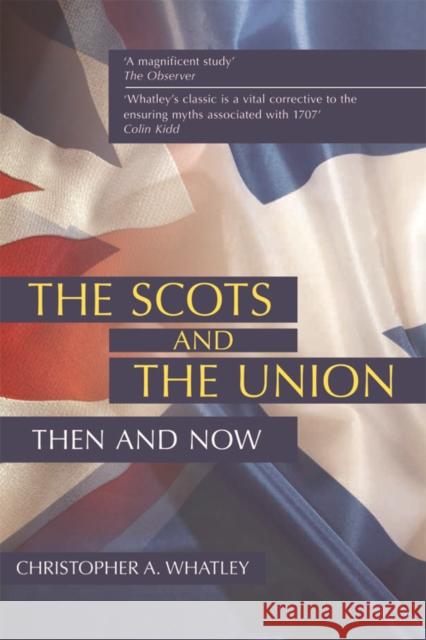The Scots and the Union: Then and Now » książka
The Scots and the Union: Then and Now
ISBN-13: 9780748680276 / Angielski / Miękka / 2014 / 480 str.
Public opinion in Scotland in 1707 was sharply divided, between advocates of Union, opponents, and a large body of "don't knows." In 1706-7 it was party (and dynastic) advantage that was the main reason for opposition to the proposed union at elite level. Whatever the reasons now for maintaining the Union, they are in some important respects different from those which took Scotland into the Union, such as French aggression, securing the Revolution of 1688-89 and the defence of Protestantism. This new edition assesses the impact of the Union on Scottish society, including the bitter struggle with the Jacobites for acceptance of the union in the two decades that followed its inauguration. The book offers a radical new interpretation of the causes of union.
Now, as in 1706-7, some kind of harmonious relationship with England has to be settled upon. There exists, on both sides of the border, mutual antipathy but also powerful bonds, of language, kin, and economics. In the case of Scotland there is a strong sense of being "different" from England--a separate nation. But arguably this was even more powerful in the mid-19th century when demand grew not for independence but Home Rule. As in 1707, economic considerations are central, even if the nature of these now are different--the Union was forged in an era of "muscular mercantilism." Perceptions of economic gain and loss affected behaviour in 1706-7 and continue to affect attitudes to the Union today. This new edition lends historical weight to the present-day arguments for and against Union.











